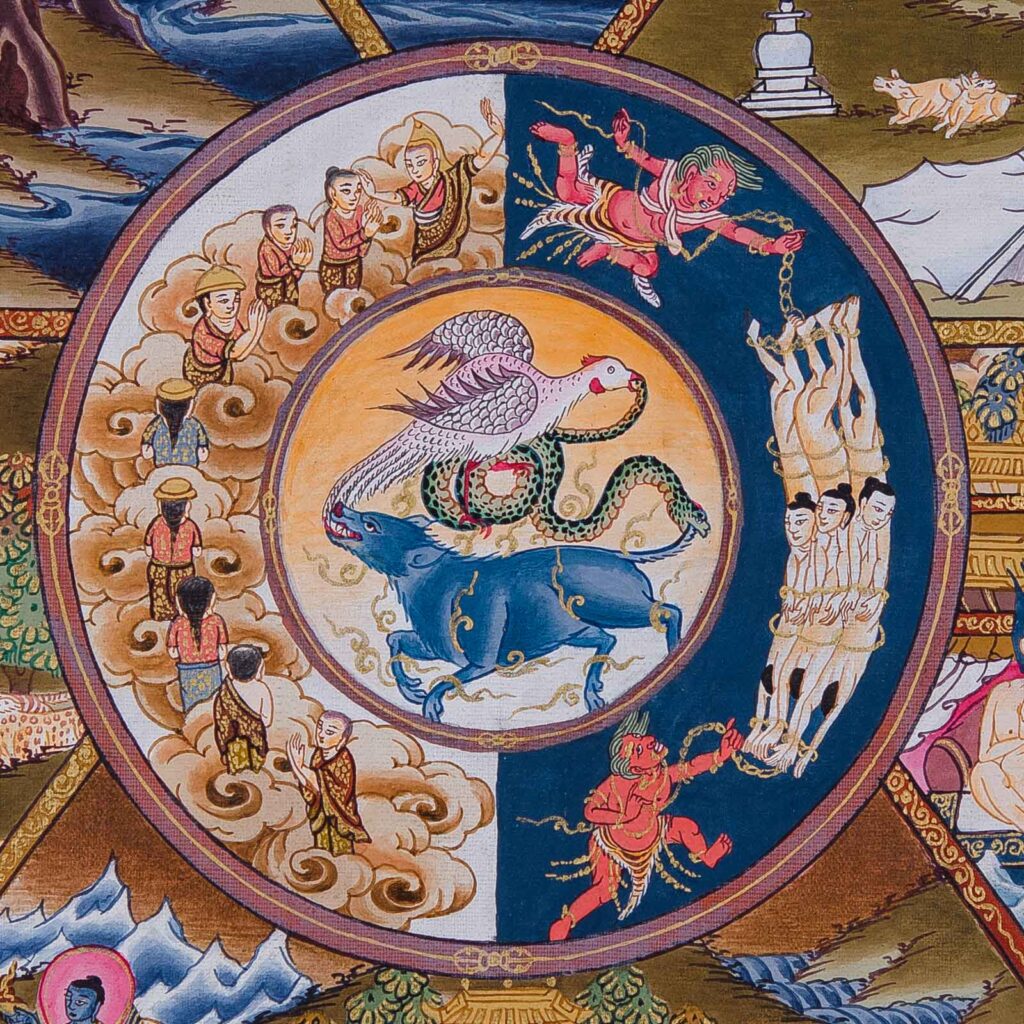
The idea of Samsara generates considerable confusion, an ironic condition since the essence of Samsara is confusion. Although we humans are a clever lot, there’s far more that we do not know or understand than there is that we do. We are profoundly ignorant. In order to fill in the gaps, to create a comprehensible and predictable reality, we use imagination to construct narratives, and those narratives become memories we promote to ourselves and others as facts. In this way, we construct Samsara, the imaginary world we remember, both personally and collectively.
Not just the mind, but the body remembers, and together the two, like knitting needles, loop the yarn of Samsara into a blanket within which we wrap ourselves. The narratives we spin fuel emotions we feel, which then in turn generate new narratives, ad infinitum. In this way, Samara – the way the world appears to us, ie: reality – increasingly becomes complicated and confusing. To make matters even more complex, my Samsara is not yours; the best we can do is compare notes and find areas of overlap; a form of collective Samara is created, albeit abstract and imaginary, being “American” for example, or “middle class.”
Remembering, i.e. “seeing again,” is at the heart of all this. For a while, we share memories of joint experiences with others, but when the others are gone, the best we can do with memories is convert them to stories within our personal narratives. Collective Samsara is comprised of stories, too. This is the nature of life spent in an imaginary realm, the realm of the human mind, with all its tricks and quirks. To us, the external world constantly changes while our personal identity remains the same. How does that happen?
Herein we encounter the Hermeneutics of Samsara, that our experience of life, reality, is built upon interpretation. All that we we see, hear, feel, taste and experience – the entirety of our sensory experience – is subject to interpretation. That interpretation can be ratio-centric, subject to our imposition of grammar, logic and temporal order; it can be idiosyncratic and defy explanation; and/or it can be physical, emotional, and intuitive, like experiencing a tight stomach or feeling relaxed when approached by a stranger. Whatever the case, we interpret, and not always correctly or in ways that make life easier. To the contrary, our interpretations often lead to anxiety and suffering.
Life is a lossy file format; biologically, what we each think and learn is lost over time. Our memories themselves are not passed on genetically, however the feelings and emotions we’ve experienced are; science calls this type of inherited information epigenetic, literally meaning “information in addition to DNA.” In this way, the emotional experiences of anxiety, trauma, joy and happiness we feel are passed on and become catalysts for gene expression in our descendants. My grandfather’s childhood anxiety, it turns out, affects my health today. This links the ideas of Karma and Samsara, that the feelings we experience resonate through time and affect future interpretation. We literally carry our family’s emotional baggage with us, handing it off to our descendants who then haul it around with them.
There’s no escape; this is our human condition. Enlightenment and liberation are the attainment of complete clarity about, acceptance of, and relaxation into the true nature of the reality of our situation.
For us, Samsara is Nirvana, so please try to be kind.
A brilliant assessment, Larry. I will pass this on—perhaps not epigenetically.